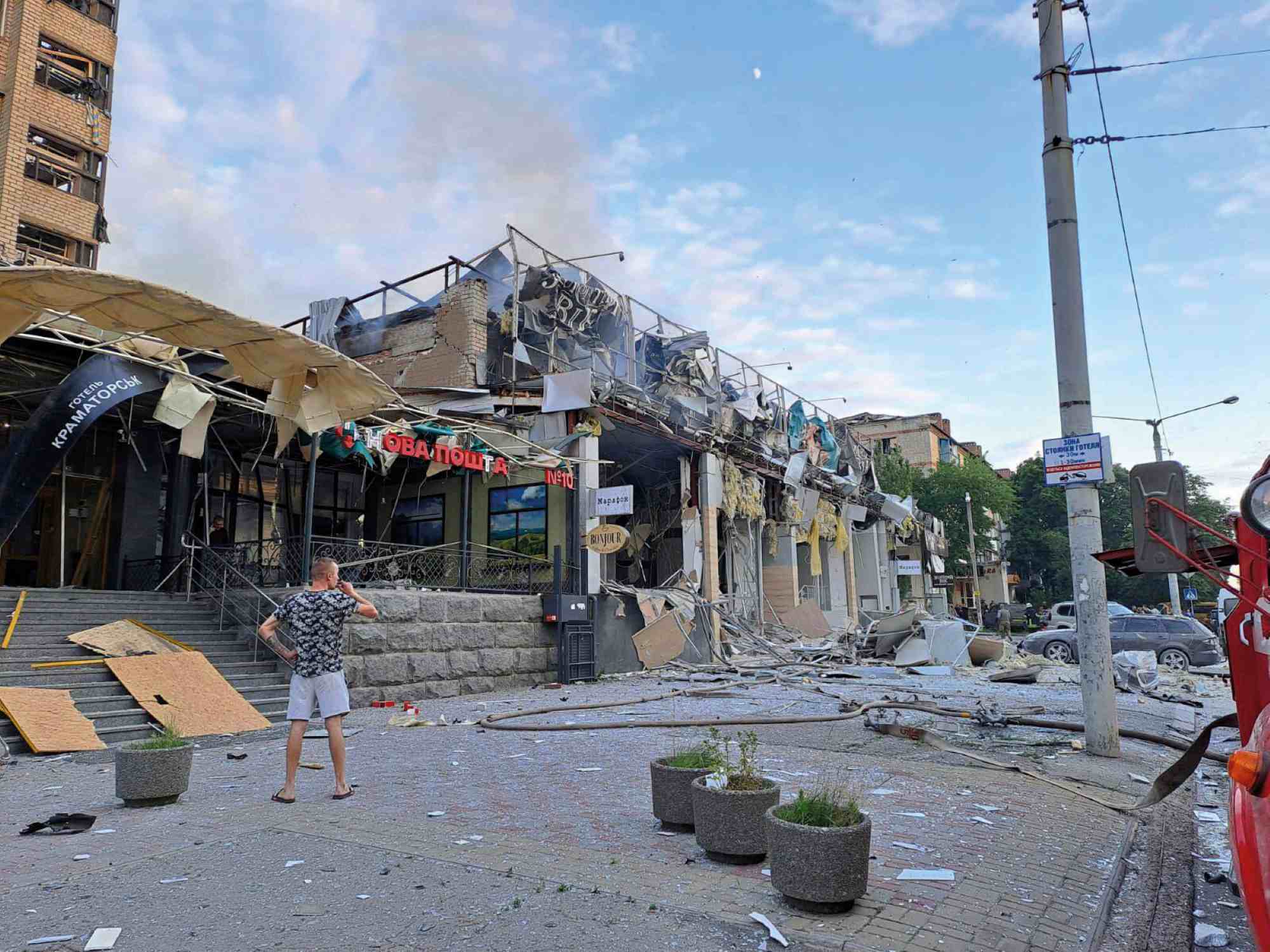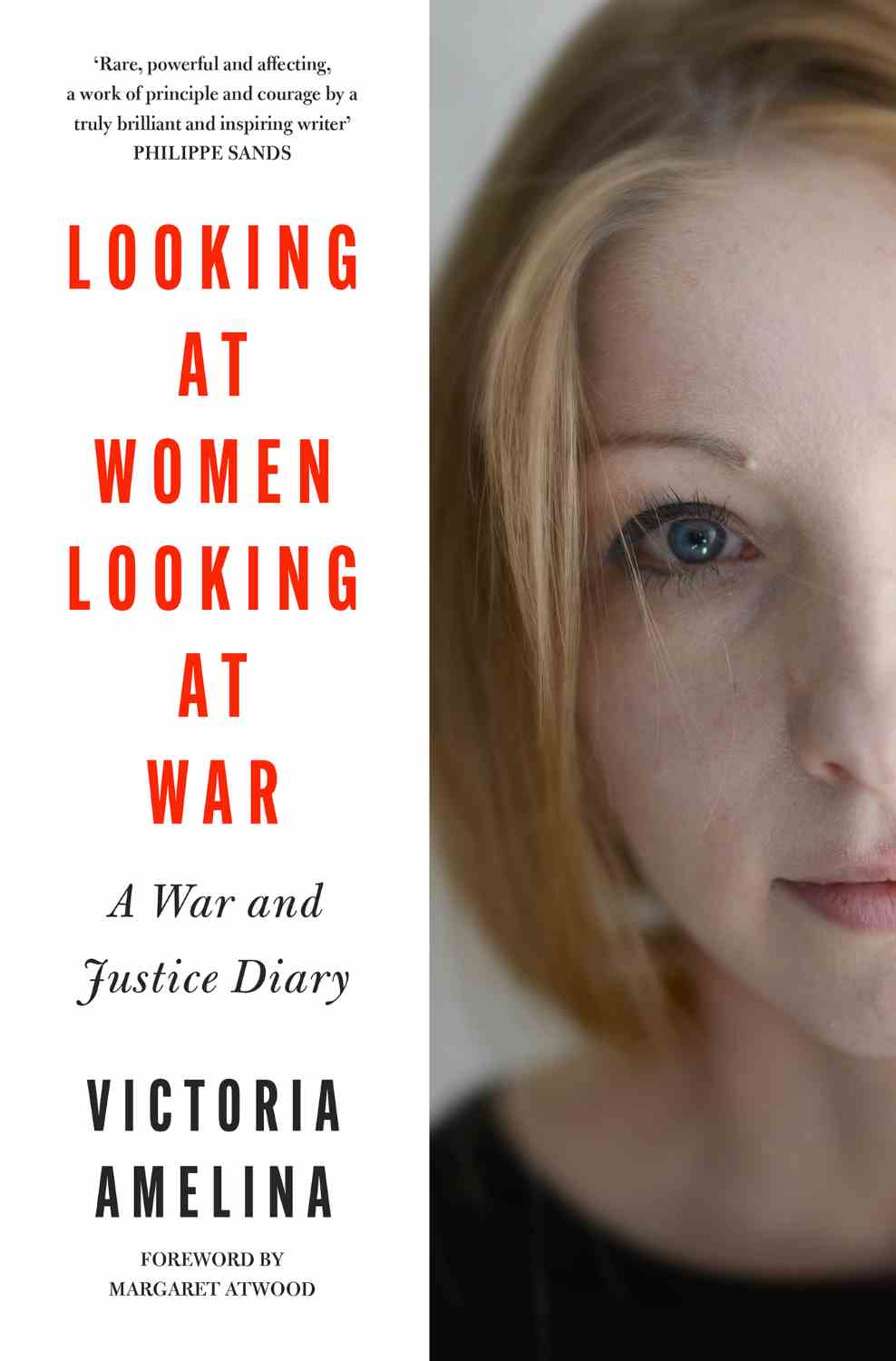'Vivid and powerful': Laura Kyrke-Smith reviews 'Looking at Women, Looking at War'
Kyiv, 4 July 2023: A mourner holds a tribute at the funeral of Victoria Amelina | Image by: Sipa US / Alamy Stock Photo
4 min read
This stunning collection of work by Ukrainian novelist and war crimes researcher Victoria Amelina – killed by a Russian missile strike in 2023 – captures the raw horror of war
When Russia attacked Ukraine on 24 February 2022, Victoria Amelina was on holiday in Egypt with her 10-year-old son. A mum and a writer, she was struggling to switch off from work, with a funding application due for a literary festival that she was organising.
Just 17 months later Victoria Amelina was dead. She was killed by a Russian missile strike on a pizzeria in Kramatorsk, where she was hosting a delegation of Colombian authors.
Looking at Women, Looking at War is a stunning account of those 17 months. Amelina weeps as she lands back in Europe from Egypt, “because it seems that in looking at me, people have started seeing not me but war. I am war. We Ukrainians all became a war”. She didn’t choose this. But we are all better off for the choice she did make, to use her literary talents to become a war crimes researcher with the formidable Ukrainian NGO, Truth Hounds.
 Donetsk, 27 June 2023: The pizzeria in Kramatorsk hit by a Russian cruise missile. Amelina succumbed to her injuries five days later | Image by: Associated Press / Alamy Stock Photo
Donetsk, 27 June 2023: The pizzeria in Kramatorsk hit by a Russian cruise missile. Amelina succumbed to her injuries five days later | Image by: Associated Press / Alamy Stock Photo
This book, lovingly compiled by a group of friends, is based on fragments of research and writing unfinished when Amelina died. The gaps only make it more vivid, more powerful.
We read a summary of her training in war crimes research, on how to extract vital information from deeply and recently traumatised people. We read a report of the last mission she went on, to Balakliya, copied and pasted into the manuscript unedited. The raw horror of what she documented is there in black and white. Torture by hanging. Torture by drowning. Rape. Removal of a child to a “rest and recuperation camp”.
Unfinished when Amelina died, the gaps only make it more vivid, more powerful
Also inserted directly into the book is the transcript of a discussion she had with the eminent international human rights lawyer Philippe Sands at the October 2022 Lviv BookForum. They share their hopes for a future world in which a special international tribunal for the crime of aggression sees Vladimir Putin brought to justice for the crimes that she documents – and so many others. It saddens me to read this at a time when the very concept of truth is ever more questioned, and the justice they aspire to for Ukraine feels ever further from reach.
Early in its writing, Amelina envisaged the book as a collection of stories of women she meets. Many of their stories are included. Evhenia Zakrevska, who joins the army. Tetyana Pylypchuk, director of the Kharkiv Literary Museum. Svitlana Povalyaeva, a fellow poet, activist and mum. Women of incredible courage, determination and compassion, just like the author.
 The book also offers a sense of the everyday ways in which Ukrainians have coped in this war. “There are no rules for surviving, but there are still rules for living. It was in our power to save bugs, cross the streets on a green light, be polite, be elegant, be human,” Victoria says.
The book also offers a sense of the everyday ways in which Ukrainians have coped in this war. “There are no rules for surviving, but there are still rules for living. It was in our power to save bugs, cross the streets on a green light, be polite, be elegant, be human,” Victoria says.
Only rarely does Amelina reveal the toll the war took on her personally. Learning of the liberation of Kherson, she collapses and loses consciousness. “Oh, so your sister is in Kherson? So this is the reason, perhaps. You stressed too much over it,” the paramedics kindly suggest.
But this book was never meant to be about Amelina. It is, in her words, “to uncover the truth, ensure the survival of memory, and give justice and lasting peace a chance”.
It does this so effectively. What could be more prescient, and now more timely?
Laura Kyrke-Smith is Labour MP for Aylesbury
Looking at Women, Looking at War: A War and Justice Diary from Ukraine
By: Victoria Amelina
Publisher: William Collins
